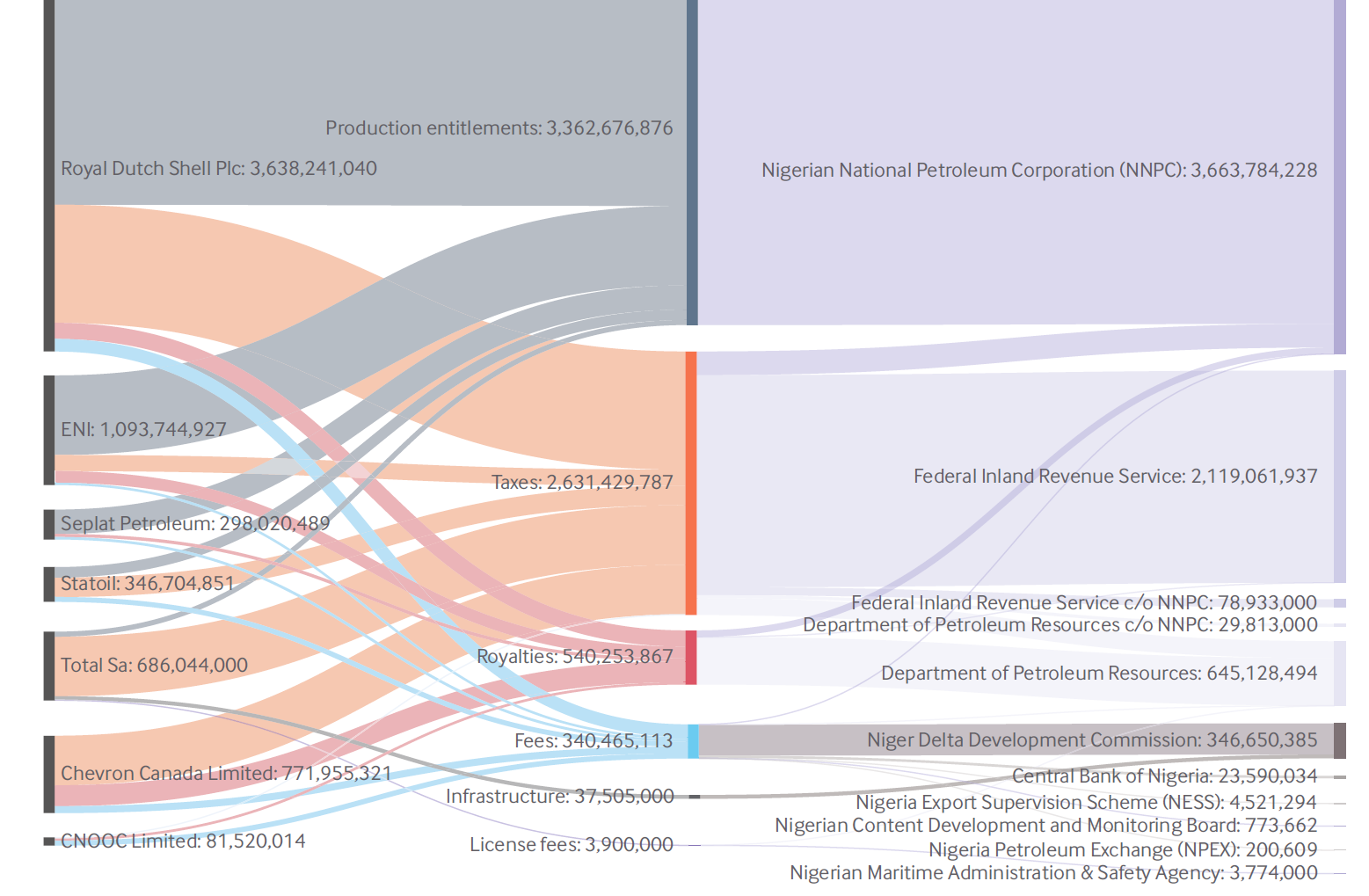
Nigeria’s Oil and Gas Revenues: Insights from New Company Disclosures
Nigeria is one of the largest and oldest oil producers in Africa, with over 50 years of commercial extractive activity. Until recently, however, citizens within the country have not had sufficient information to hold companies or government entities accountable for billions of dollars of oil and gas revenues, nor to begin to assess the costs, benefits and management of the country’s extractive activities.
With the introduction of recently passed mandatory payment disclosure laws in Europe and Canada, companies incorporated or listed in these jurisdictions are required (for the first time) to disclose their payments to government entities. These newly released payments-to-governments (PtG) reports provide timely and informative data on the payments mining and oil and gas companies make to government entities. Companies must categorize payments as one of seven payment types, such as taxes and royalties. They also must report which government entity receives the payment, and must break down the payment data by project, where applicable.
These disclosures have brought unprecedented levels of relevant and timely project-level payment data into the public domain. This data—especially when combined with data from other sources (including companies’ annual reports, EITI reports and government statistics)—can lead to better-informed public debate on the management of the country’s natural resources.
This briefing aims to highlight potential avenues of inquiry for media and civil society stakeholders—they can use this information to push for greater accountability from companies and government entities around extractive industries’ revenues. Focusing on Nigeria, this briefing examines the data available in PtG reports and demonstrates how, in a country context, citizens can use such data.
This briefing concludes with recommendations for how companies and government entities—both within Nigeria and globally— can improve their data disclosure practices to empower the country’s citizens to conduct a more informed public debate on the country’s natural resource management. These improvements include:
· NEITI should increase the speed of its report releases.
· All companies operating in Nigeria should report voluntarily.
· NNPC should commit to commodities trading transparency.
· Governments of countries home to commodity trading hubs should include commodities trading transparency in mandatory disclosure legislation.
· NNPC should improve the level of detail and format of the data disclosed in its monthly financial and operations report.
The payments to governments data covered in this briefing are available on ResourceProjects.org.

